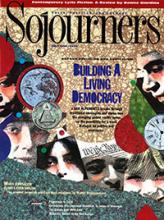Each workday, a majority of the nation's parents entrust the care of their young children to others -- a relatively recent phenomenon that has transformed the issue of child care from a strictly private family matter to one with profound implications for the whole of society.
In this context, the president's threatened veto of the Act for Better Child Care Services (known as the "ABC bill") -- and his similar threat concerning any measure requiring parental leave for the care of young children or for family emergencies -- does far more to illustrate his administration's social policy than does his pro-family rhetoric.
The ABC bill has generated significant controversy in and out of the religious community about the church-state implications of subsidized child care. Churches and synagogues operate, or provide space for, many of the nation's day care centers. (A National Council of Churches survey revealed that 18,000 member churches are involved in child care programs.) Thus, federally-subsidized child care often looks like state support for religion.
Those who support the subsidies in the ABC bill -- which would not go directly to care centers, but to parents in the form of vouchers -- argue that such assistance is necessary to help make quality day care accessible, especially to low-income parents. Others respond that the use of vouchers could eventually hurt the same low-income parents and children if a similar system were begun for the schooling of elementary-age children.
According to Karen Collins, associate director of the Child Advocacy Office at the National Council of Churches, "Our major concern is that the voucher system could seriously undercut public education in elementary schools" if parents were ever able to use such federal subsidies for private schooling.
Read the Full Article
